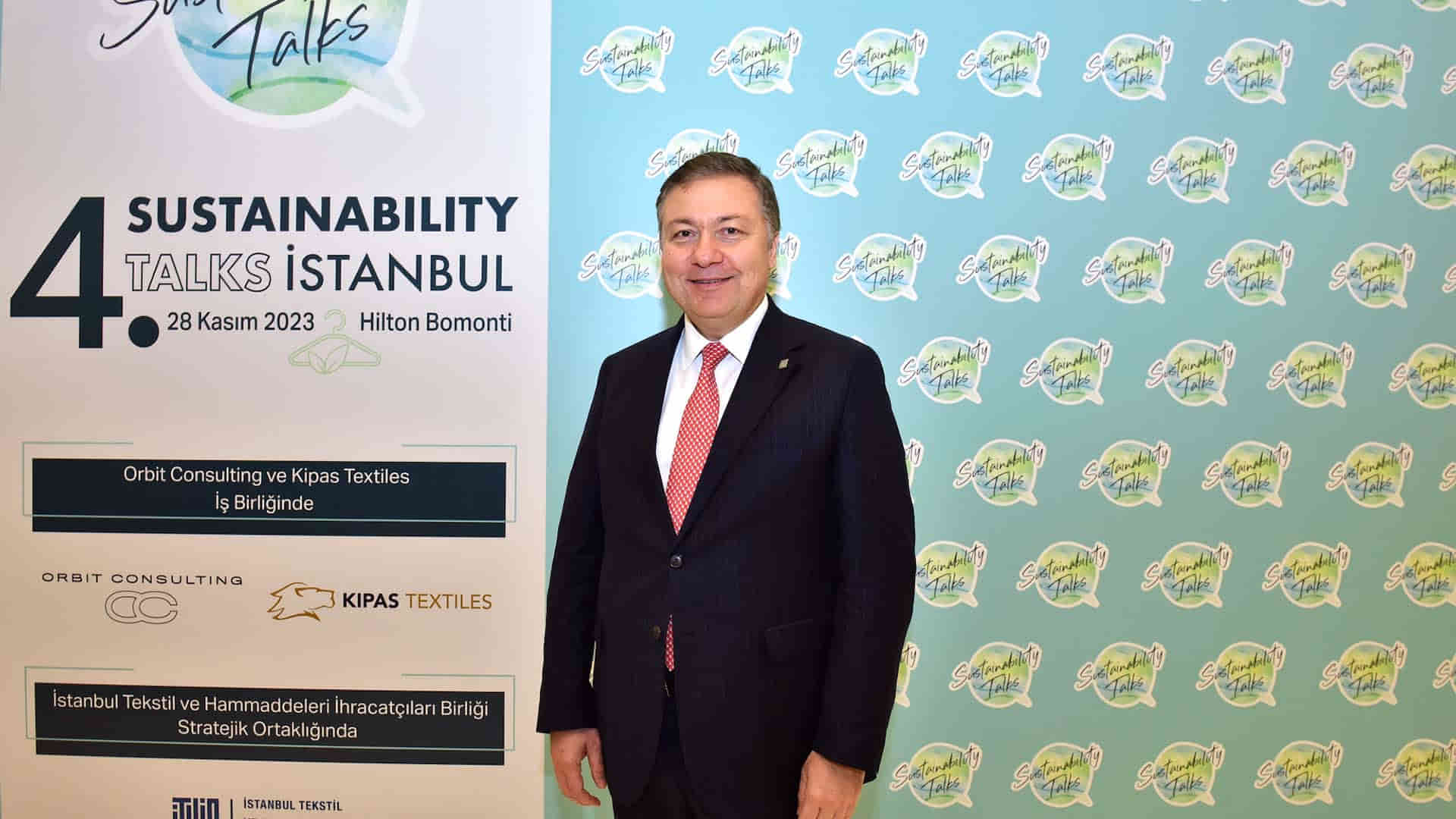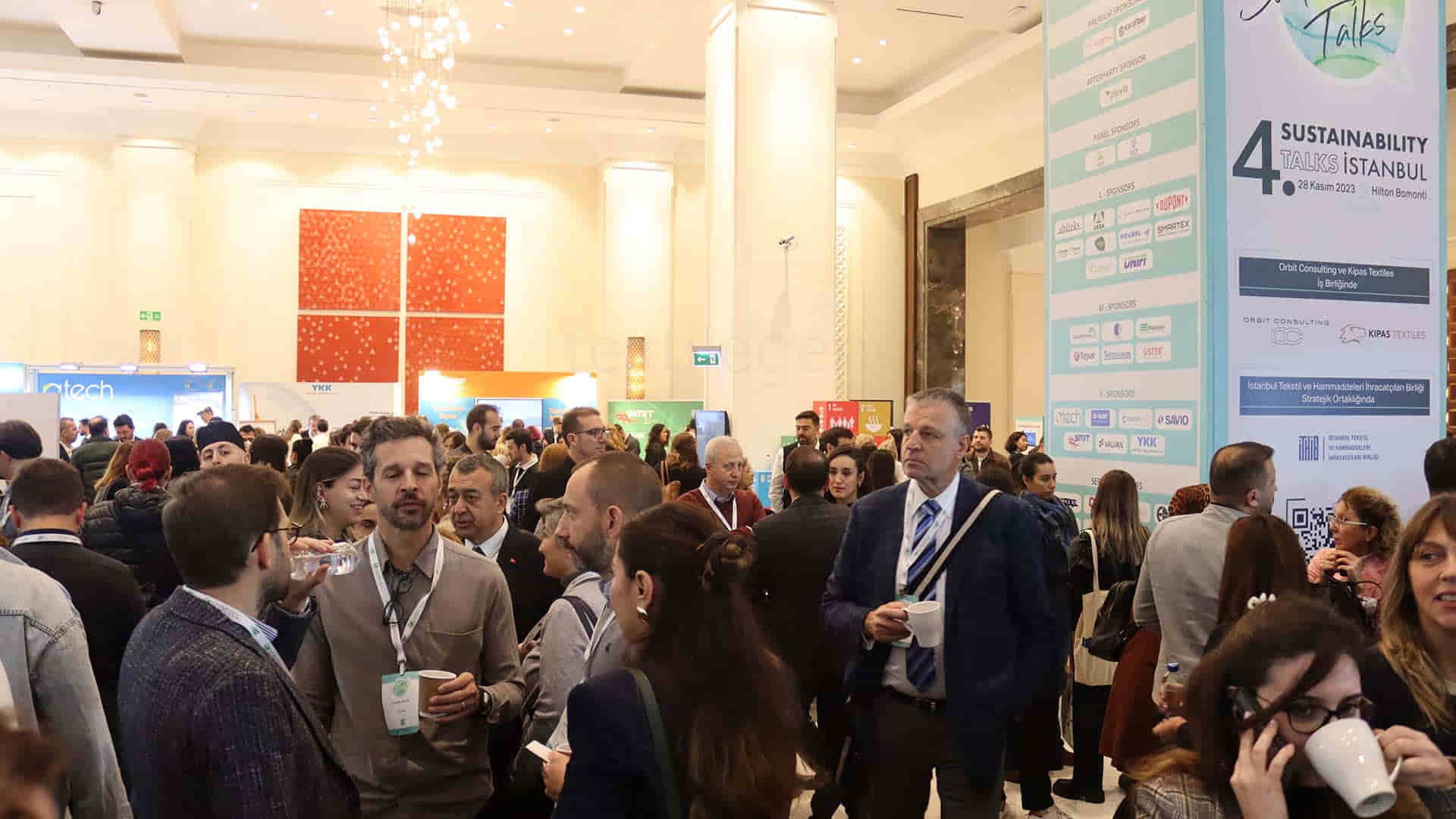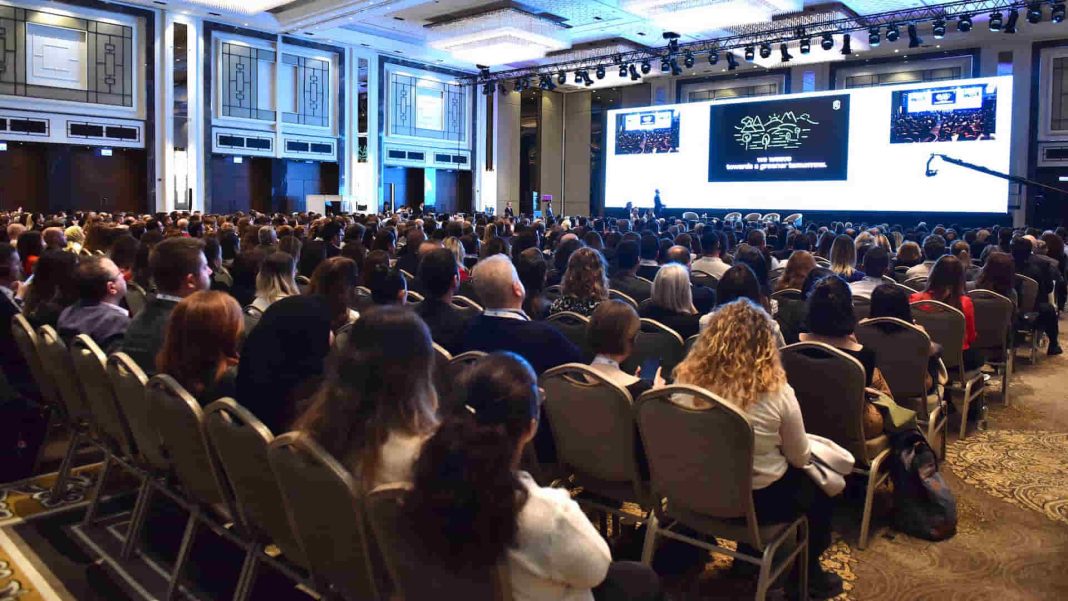Sustainability Talks Istanbul, held for the fourth time this year to raise awareness on sustainability in the textile and fashion industry as well as to take solution-oriented steps, brought together all stakeholders at Hilton Istanbul Bomonti Conference Center on November 28th with great interest and participation. Organized with the strategic partnership of Istanbul Textile and Raw Materials Exporters’ Association (İTHİB) and in cooperation with Orbit Consulting – Kipaş Holding, the event was supported by many brands including leading textile machinery and fabric manufacturers from Türkiye and abroad. The 4th Sustainability Talks Istanbul, which we followed on-site as Textilegence, was organized in a wider area this year and featured sustainability-focused speeches held simultaneously in three different halls. In this way, the participants had the opportunity to get information by following the session of their choice among many topics. New generation fibers, sustainability solutions with artificial intelligence technology, circularity and regenerative applications in textiles were among the topics discussed. Furthermore, supporters met with other industry stakeholders at their booths in the event area sharing their sustainable solutions.
Istanbul Textile and Raw Materials Exporters’ Association (İTHİB) Chairman Ahmet Öksüz made the opening speech at the event, where IKEA Sustainable Business Manager Calvin Woolley, Kara Holding Vice Chairman İbrahim Kara, Karacasu Board Member Burak Orhan Arifioğlu and Fashion for Good Asia Region and Supplier Relations Head Priyanka Khanna took part as speakers. At the summit, where United Nations Development Programme (UNDP) Goodwill Ambassador Mert Fırat was the host, ‘SustainTech Istanbul’ sessions were held for the first time this year. At the event, new initiatives that offer innovative, transformative sustainability solutions in areas that affect textiles and fashion met with brands and investors in the sector.

“Sustainability Talks supports our industry as the most extensive activity that brings all stakeholders together”
Ahmet Öksüz stated that not only manufacturers but also designers, global brands and even consumers have a common responsibility for sustainability. Öksüz disclosed: “To ensure the continuity of sustainable development goals; we need much more comprehensive, solution-oriented collaborations. As all segments, ‘we need to make sustainability sustainable’, this is the common responsibility of all of us.”
Pointing out that there are many studies to be carried out and a long way to go on the circular economy journey, Öksüz said: “This journey is a journey in which all stakeholders such as manufacturers, suppliers, brands, the public and universities must act jointly. Our ‘Sustainability Talks’ program supports our sector as the most extensive activity that brings all parties together in this scope. In 2018, the first ‘Sustainability Talks’ program was launched with the participation of 200 people. Today, we are evaluating not only Türkiye’s but also the world’s sustainability agenda with valuable experts and topics.”

“We need to make sustainability sustainable”
Remarking that agenda items such as ‘audit fatigue’, ‘greenwashing’ and ‘energy crisis’ had a negative impact on the textile industry in the sustainability journey, which was started with great sensitivity, Ahmet Öksüz continued his words as follows: “However, this responsibility is not only the responsibility of the manufacturer but also the designer, global brands and even consumers. Each brand has more than 40 social compliance and environmental audit processes and certifications along with its own audits. Greenwashing not only misleads consumers, but also forces manufacturers into unfair competition. Unfortunately, the energy crisis is a common problem of our entire near geography. According to KPMG’s 2022 Global Energy Sector CEO Survey, only 9 percent of CEOs think that climate change is the most critical risk. In the 2021 version of the same research, this rate was 35 percent. We need more comprehensive, mutually understanding, solution-oriented collaborations to ensure the continuity of sustainable development goals. In short, we need to make sustainability sustainable.”
